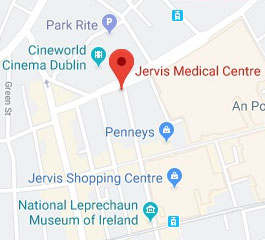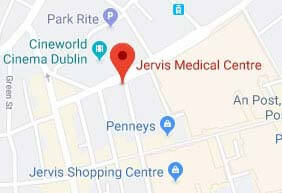Prostate Cancer
Prostate Cancer Information
What is the prostate?
The prostate is a small gland found only in men and is part of the male reproductive system. It is the size of a walnut and surrounds the first part of the tube (urethra) which carries urine from the bladder to the penis. The prostate lies close to the rectum (back passage) through which it can be closely felt and examined for its size. The function of the prostate is to make some of the fluid used to carry sperm.
What causes prostate cancer?
The cause of the majority of prostate cancers is unknown. However, the risk of developing prostate cancer may be slightly increased with the following.
- Increasing age
- Family history
- Diet
- Race
How common is prostate cancer?
Prostate Cancer is the most common male cancer. There is some evidence to suggest that the ”Western diet” which is rich in fats and low in fibre, plays a role. If a close male relative develops prostate cancer the risk of developing the disease may be slightly increased. African-Caribbean and African-American men are more at risk than other ethnic groups. Prostate cancer responds well to treatment and if detected early it can be treated successfully.
What to look for
Early prostate cancer is often present without any obvious symptoms. However, if you have any of the symptoms listed below do make an appointment with your doctor. Urgency, is it difficult to postpone or put off passing urine, feeling the need to rush to the toilet to pass urine Frequency going to the toilet more frequently than before, Nocturia, needing to get up more than twice at night to pass urine Hesitancy taking time to get going when trying to pass urine Flow has the flow of urine become weak or intermittent, starting and stopping Incomplete emptying, feeling that the bladder has not emptied properly after passing urine Blood, is there blood in the urine?
It is important to note that the prostate enlarges with age, it wraps around the urethra and this enlargement (Benign Prostatic Hyperplasia- PBH) can cause bladder outlet obstruction which can lead to the above symptoms. BPH is more common than prostate cancer but the conditions may exist together. BPH is not cancerous but can be troublesome.
What to do
If you experience any of the above symptoms do please make an appointment with your GP. He or she will determine the severity of your symptoms and examine your prostate gland.
The examination involves a digital rectal examination (DRE) where the prostate is examined and felt by the doctor by using a finger in the back passage. The examination itself will be painless and quick and will assess the size, texture and consistency of the gland and look for any irregularities.
How is prostate cancer diagnosed?
Tests and investigations to diagnose prostate cancer include digital rectal examination, blood tests (PSA) a rectal scan (transrectal ultrasound) and a biopsy of the prostate.
What is the PSA blood test?
PSA is a prostate-specific antigen, this is a substance produced by the prostate but in higher quantities in men with prostate cancer. Other causes of a raised PSA blood test include benign prostatic hyperplasia in men with a large prostate gland and infection or inflammation in the prostate (prostatitis).
A raised PSA blood test does not mean that you have prostate cancer but that you may have an increased risk of developing the disease. If the PSA is raised, your doctor will talk to you about your options. Men in Ireland are not routinely offered PSA tests to screen for prostate cancer.
There are many reasons for this the most relevant being that for a screening tool to be effective it has to be reliable and unfortunately although the PSA is prostate-specific it is not cancer-specific. In other words, the PSA can be raised for reasons other than cancer.
What is the treatment for prostate cancer?
Prostate cancer treatment will depend on
- The stage and aggressiveness of the tumour at the time of diagnosis
- The age of the patient
- General health of the patient
Some of the treatment options include, watchful waiting, surgery, radiotherapy (external beam or brachytherapy), hormone therapy, chemotherapy, cryotherapy and high intensity focused ultrasound.
Your doctor will discuss your treatment options with you, it is often useful to have a friend or relative with you when the treatment is explained. Some patients find it helps to write down a list of questions before going to the appointment.



